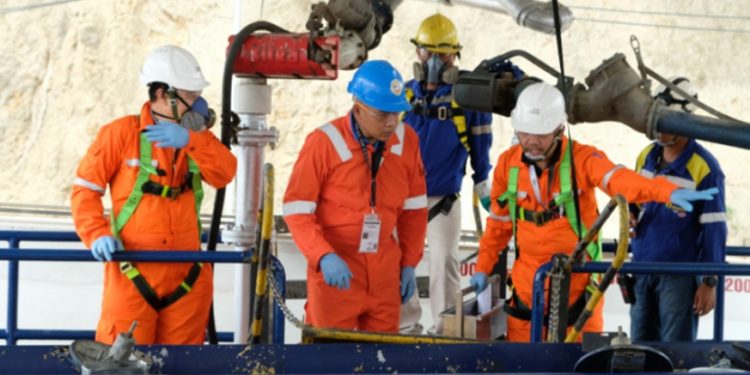Atlantic Council’s just-released report dubbed “Down Stream Oil Theft: Countermeasures and Good Practices” has revealed that fuel marking with improved technology has curbed oil theft in both developing and developed countries worldwide.
Normally, oil is a murky business and globally, countries both on the import and export end of this business have dealt with huge losses because of downstream crime.
According to the Atlantic Council, marking of fuel is not new, but the technology for doing so has advanced considerably in recent years.
It says that dyes have been used in Europe for decades to identify fuels with differing tax rates, but criminals have established extensive operations to launder the fuel, removing both the dye and the effectiveness of that marking approach.
However, according to the report, more advanced molecular markers that cannot be removed have become useful and effective countermeasures to fight against both theft and adulteration.
This report by Dr David Soud notes that countries that adopted the technology began to reap benefits like recovery of lost revenue, forensic evidence for the prosecution of criminals and increased confidence among domestic fuel consumers as well as domestic and foreign investors looking for indications of good governance.
These countries include Mozambique, where the recently established fuel integrity program led to a 32 per cent increase in fuel-related tax revenues in only six months.
Tanzania has also joined the fray of countries enjoying the benefits of the use of fuel markers. Official figures indicate that while in 2007 as much as 78% of the fuel sold in Tanzania was adulterated, that has been reduced down to four per cent in 2019.
University of Dar es Salaam cites that this led to an increase in revenue to about $200 million between 2010 and 2013 alone.
Cross-border approach of fuel marking
A collaborative cross border approach to fuel marking succeeded in mitigating smuggling of fuel as well as adulteration in Europe, as per the report.
It says that, in 2002 the United Kingdom was losing up to 1.6 billion pounds per year in fraud and adulteration. A joint program launched in 2015 with Ireland saw 2.6 million litres of fuel confiscated in the first two years of the program.
On this note, the report recommends proactively coordinating with other states in controlling cross border crime and pursuing stakeholder engagement policies that alert them to effects of downstream crime.
It further recommends conducting thorough risk assessments for crime and corruption in the downstream sector, crafting or reforming policies related to fuel subsidies to disincentivise some forms of downstream crime.
Additionally, the Countermeasures and Good Practices report calls for governments to continuously evaluate its downstream criminal threats, study available countermeasures and craft a strategy that is both adaptable and comprehensive.









